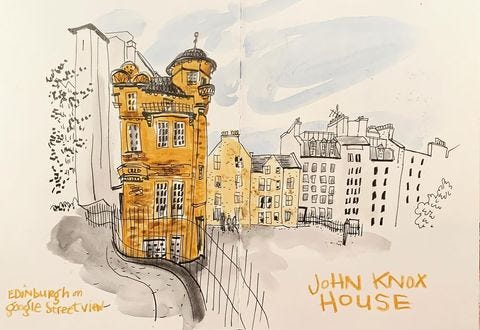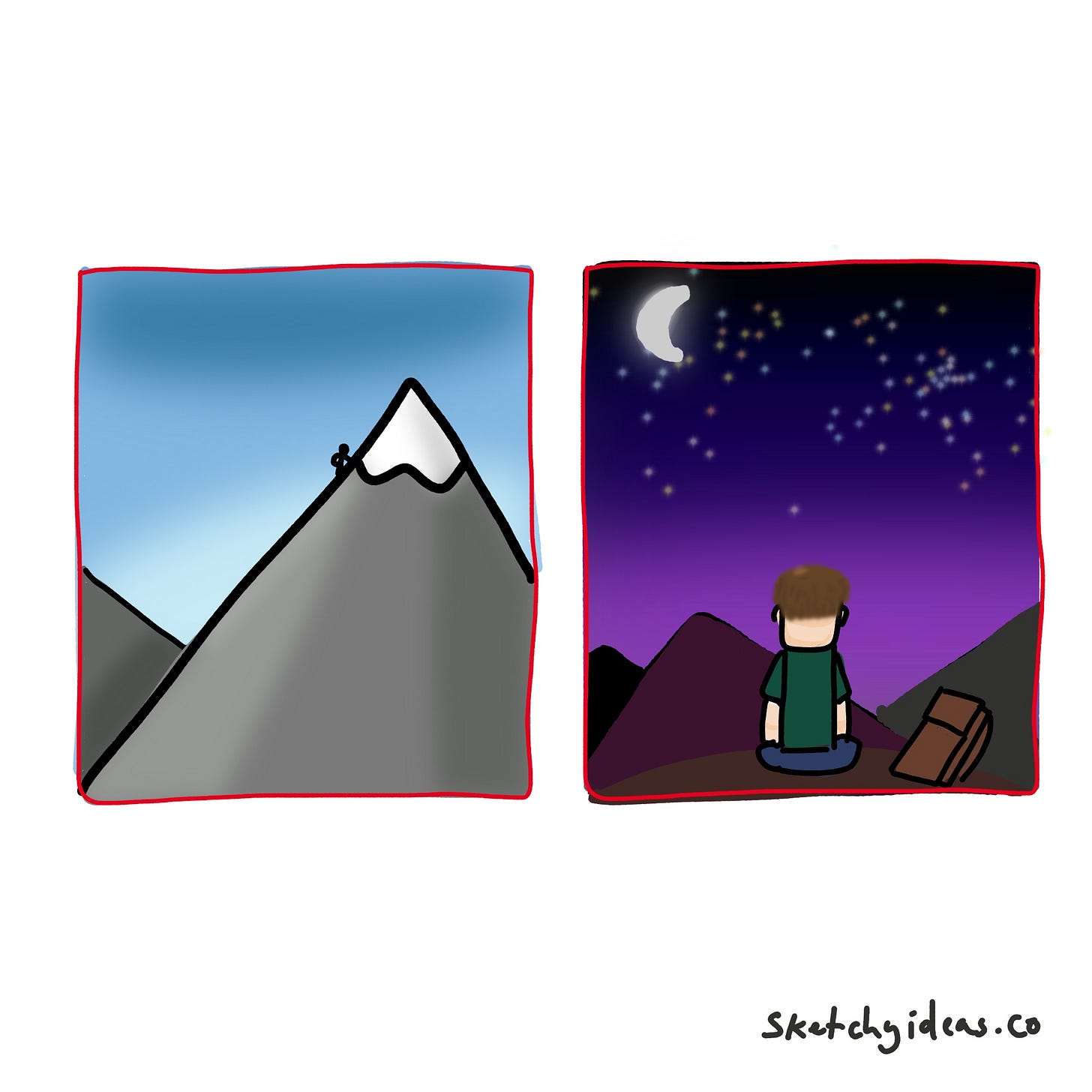Practice doesn't make perfect
Here's what really helps
Welcome back.
I hope you had a great week and got some sketching in.
Honestly, mine was quite rough will the whole family getting ill, including me eventually. High temperatures, aching heads and muscles, and restless nights are no fun. But we’re glad it happened this week and not next when we fly back to the UK in time for Christmas.
We’ll be flying next week so there may be a slight delay in publishing but I hope not.
I hope you have exciting holiday plans too.
From around the web
I love the little details in this chart outline. Each quarter sets the theme of the section through little details. - Pinterest Say, think, do, feel
I’ve made a few sketchnote summaries of books in my time, if you’d like to then you might enjoy this challenge to sketchnote a book with
Learn how to draw a gnome Santa from Ela Curyło
Try urban sketching without leaving your home. Take a leaf out of Koosje Koene’s book and use google street view.
We learn by reflecting on our experience
"We do not learn from experience . . . we learn from reflecting on experience."
A quote often attributed to John Dewey but it seems never actually said it — although it does represent his work.
Timothy Gallwey, a key figure in modern coaching, noticed the power of reflection.
He was the captain of Harvard's Tennis team who took a job coaching tennis after he graduated.
One day he was tired from instructing his tennis students, he just hit a few balls at one student without saying a word. After a few strokes, the student adjusted his footing and hit a cleaner shot. He was shocked. So he asked the student what happened.
The student explained that he had noticed the ball was too close to him, so he moved his feet.
Timothy was shocked.
The student had correctly identified his issue and what needed to be corrected. Even more surprising, unlike the students for whom he diagnosed their mistakes only for them to keep making the same mistakes — this student actually changed their approach.
So he carried on for the rest of the session.
At the end of the session, the student said it was the best class he'd ever had.
So Timothy decided to see if this was a fluke. Was it really better to say as little as possible? Were a few questions to prompt reflection and self-awareness better than explicit teaching?
His students certainly thought so, and the result on the court backed it up as well.
Timothy's success was so impressive he soon had coaching requests from outside of tennis.
His book "The Inner Game of Tennis" and subsequent work revolutionised coaching. His insights aren't just relevant to coaching though. As the quote at the start says, reflecting on our experience is how we learn.
One simple way I apply this is with the + / - / → journal prompt1.
At the end of each week, I write down three good things (pluses), three things that didn't go so well (minuses) and three things I will do next week. Sometimes I have a few extra pluses or minuses, and sometimes it's a struggle to come up with three of each! But it is a simple reflection I can do each week.
Do you have a reflective practice? What does it look like?
Well, that’s all for this week.




